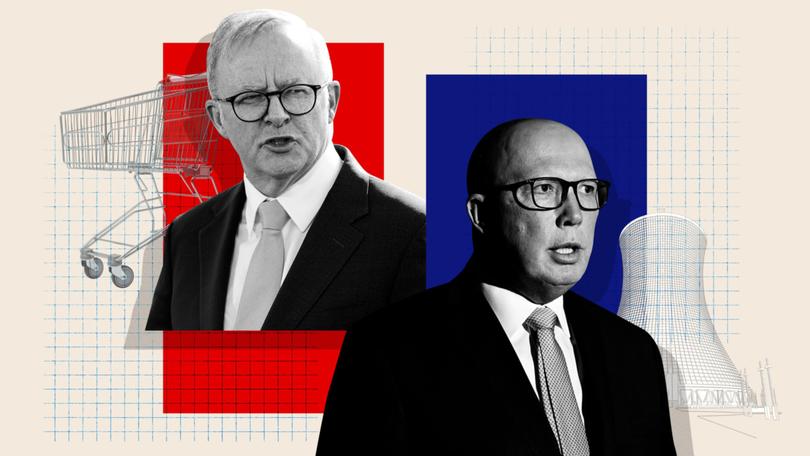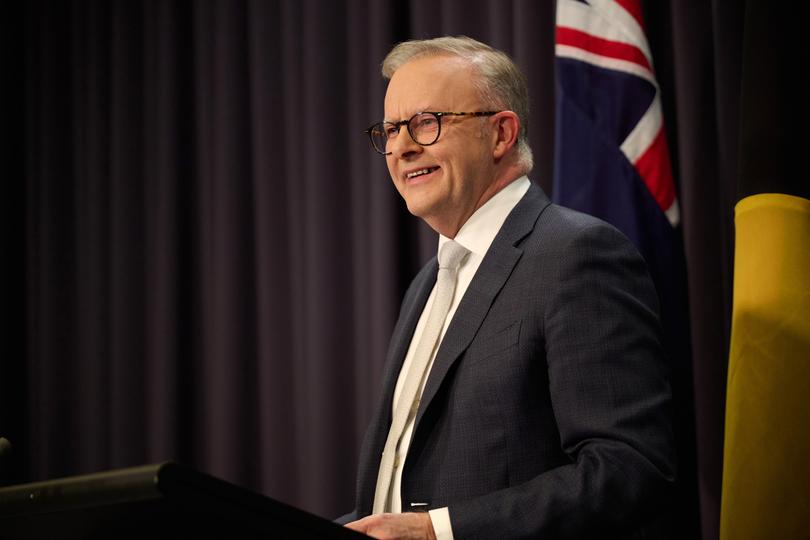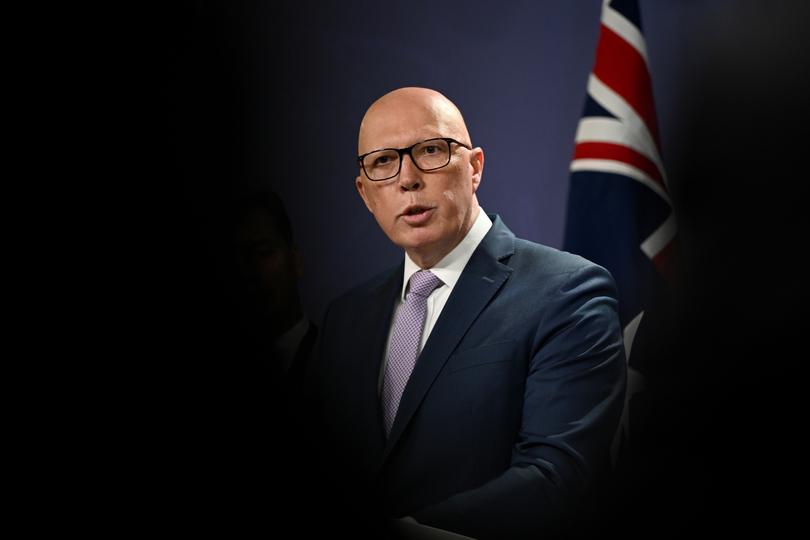Labor’s Budget measures under pressure after worse-than-expected inflation figures raise fears of rate hike
With Labor and Liberal gearing up for the next federal election — due by May — cost-of-living and energy policies are shaping up to be major battlegrounds.

Labor’s budget measures are under increasing political pressure after worse-than-expected inflation figures raised fears of another interest rate hike.
With both sides gearing up for the next federal election — due by May — cost-of-living and energy policies are shaping up to be major battlegrounds.
Peter Dutton led the attack on Thursday, questioning how the Albanese government could claim its billions of dollars in cost-of-living measures were reducing inflation when official data revealed the monthly consumer price index had risen to four per cent in the year to May, up from 3.6 per cent the month before.
Sign up to The Nightly's newsletters.
Get the first look at the digital newspaper, curated daily stories and breaking headlines delivered to your inbox.
By continuing you agree to our Terms and Privacy Policy.That is the highest it has been since November when the RBA last hiked rates, it prompted the markets to push back expectations of a rate cut to November 2025.
It has also seen market expectations of a rate hike in August skyrocket, as persistent sticky core inflation — up to 4.4 per cent — renders the narrow path the RBA was treading more uncertain.
Pointing to that figure, Mr Dutton accused Labor of “reckless spending”, asking Mr Albanese why Australians “have to live in fear of yet another rate rise under this hopeless government”.
In response, Mr Albanese claimed the RBA had “completely contradicted” Mr Dutton’s claim, stating that because Labor had handed down two back-to-back budget surpluses, “that’s been helping the inflation situation if anything”.
“What we have done is make sure our measures to provide that cost-of-living support are designed in a way that will continue to put that downward pressure on inflation. That’s why our energy price relief plan, like the last one we introduced which had an effect of reducing inflation, that’s why we’ve designed it that way,” Mr Albanese said.
Finance Minister Katy Gallagher had earlier sought to assure voters the government was “pulling the levers we’ve got” to lower inflation, which included not only the cost-of-living measures but fiscal policy more broadly.
“We’ve delivered one surplus, we’re on track for a second. And the (RBA) itself has said that that is helpful in terms of easing inflation pressures in the economy,” she said.

Shadow Treasurer Angus Taylor, who accused the government of being “out of touch with the economic reality”, asked Mr Albanese why Australians were “paying the price for Labor’s economic failures”.
In response, Mr Albanese sought to spruik Labor’s cost-of-living relief package which comes into effect on July 1, encompassing power bill relief and the revamped stage three tax cuts.
But given the latest inflation figures revealed energy prices had been a major contributor to the higher-than-expected data — up 6.5 per cent in the last 12 months — the Coalition also took aim at what it said was Labor’s failure to drive down power bills.
Mr Albanese in response highlighted the $300 energy bill rebate for households, and $325 for small businesses, coming into effect on Monday. He also continued his attack on the Coalition’s nuclear policy which he said would send cost-of-living “further backwards”.

The Coalition has been dogged by questions all week on its plan to build seven reactors around the country by 2050, including how much it will cost.
Mr Dutton has assured voters — and his political opponents — those answers will come “very soon”, but in a Q&A session for the CEDA State of the Nation event on Thursday, he admitted it would be a “big upfront cost”.
But, he said, it was better than the alternative of green hydrogen.
“Ninety per cent of firming power (coal and gas) goes out of the market by 2034. The difference is we propose nuclear, and they (Labor) propose green hydrogen,” Mr Dutton said.
“Nobody can tell you when green hydrogen will be available … it’s not a proven technology.”
Labor sought to remind the Coalition in Question Time that small modular reactors, at least two of which would be built in Australia under the nuclear plan, were not yet commercially available.
“The Leader of the Opposition doesn’t understand the details of the policy which he is announcing, so how could he implement them?” Energy Minister Chris Bowen retorted.

